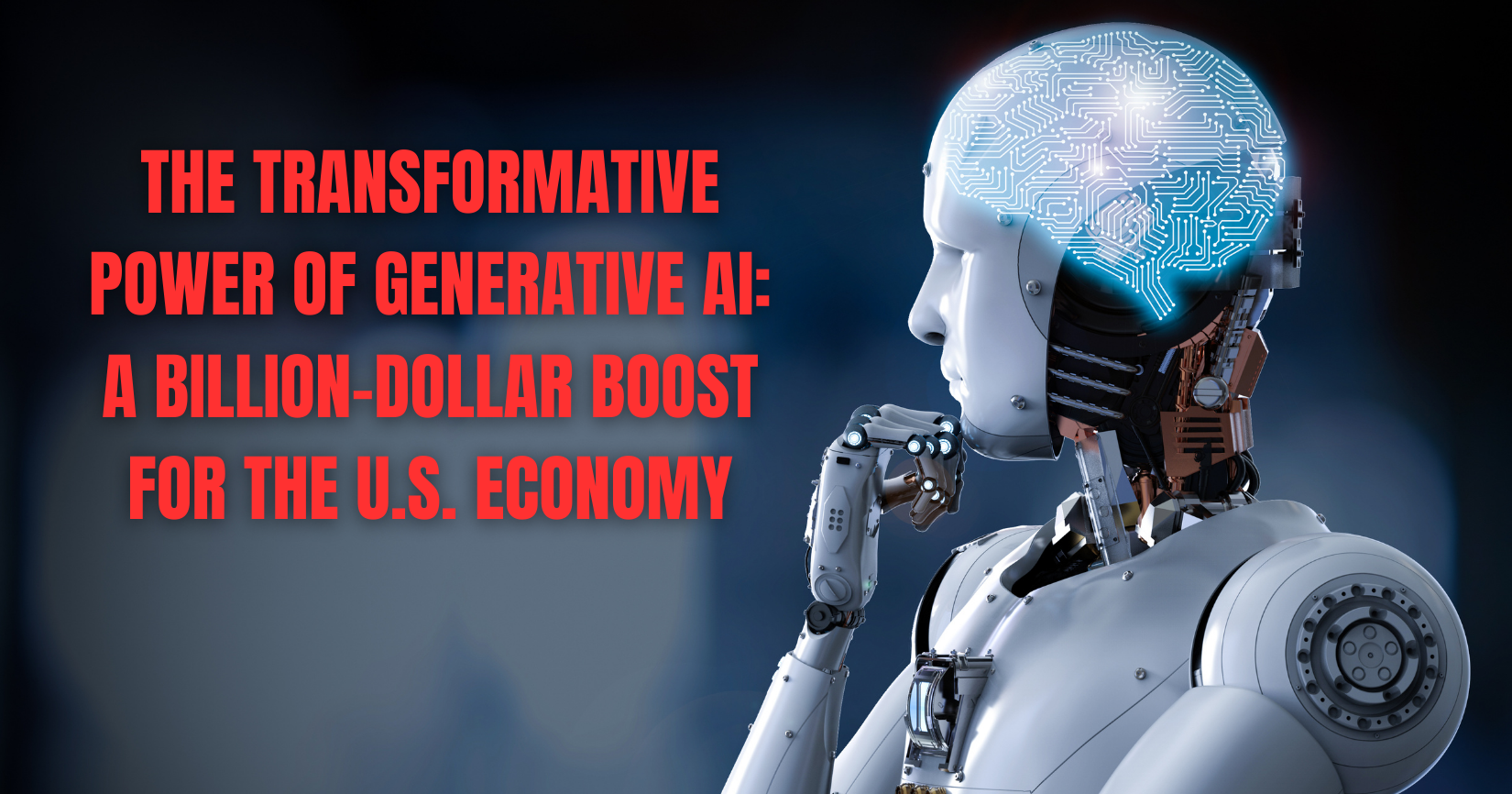The Advent of Generative AI: A New Era in Work and Productivity
In the realm of technological evolution, a groundbreaking study titled “New Work, New World” has shed light on the substantial impact that generative AI (gen AI) is anticipated to have on the American workforce and economy.
This study, a collaborative effort between Cognizant and Oxford Economics, reveals a future where 90% of jobs will experience some form of disruption due to gen AI, signaling a significant shift in our approach to work, productivity, and economic growth.
Adrian Cooper, CEO of Oxford Economics, emphasizes the importance of understanding the profound changes that generative AI could bring to the global workforce. He suggests that this technology could dramatically alter the trajectory of the U.S. economy, providing critical insights for leaders to leverage its potential and adapt rapidly.
A Billion-Dollar Impact: Understanding the Economic and Job Market Shifts
Generative AI is not just a technological marvel; it’s a catalyst for operational efficiency, new revenue avenues, product and service innovation, and a complete overhaul of business models. To put this into perspective, Cognizant and Oxford Economics developed an economic model that explores three adoption scenarios of generative AI by U.S. businesses. This model considers 18,000 tasks driving the U.S. economy, offering a detailed look at the potential impacts of gen AI on jobs linked to these tasks. While the focus is on the U.S., the insights gained are globally applicable.
Key findings of the study are eye-opening:
- Rapid Adoption and Maturity of AI: Businesses experimenting with AI capabilities might see adoption rates jump from 13% to 31% in 4 to 8 years. Post 15 years, growth is expected to slow but continue for at least another 15 years.
- Skyrocketing Economic Growth: Depending on the business adoption rate, generative AI could increase U.S. productivity by 1.7-3.5% and expand the GDP by $477 billion to $1 trillion annually over the next decade.
- Workforce Disruption: About 52% of jobs will likely undergo significant changes due to AI integration. Approximately 9% of the current U.S. workforce might be displaced, with 1% facing challenges in finding new employment, echoing historical economic shifts.
Reskilling: Preparing for the Future Workforce
As gen AI becomes a staple in the workforce, new skills and roles will emerge, necessitating a shift in employee training and development. Cognizant’s recent Synapse initiative exemplifies this shift, aiming to redefine tech education and workforce development. This initiative plans to create a pool of employable talent for the burgeoning digital economy by 2026, underlining the importance of continuous learning and adaptability in the age of AI.
The “New York, New World” study, a collaborative effort by Cognizant and Oxford Economics, is a comprehensive analysis of generative AI’s economic impact on the United States over the next decade. It’s a crucial read for those seeking to understand and navigate the changing landscape of technology, work, and economic growth. For more details, visit Cognizant’s website.
Conclusion: Embracing the AI Revolution
The study not only forecasts the economic benefits of generative AI but also underscores the need for proactive adaptation in business strategies and workforce skills. It’s a clarion call for leaders and individuals alike to harness the potential of AI while preparing for its transformative effects on the economy and job market. The future is not just about technology; it’s about how we evolve with it.





